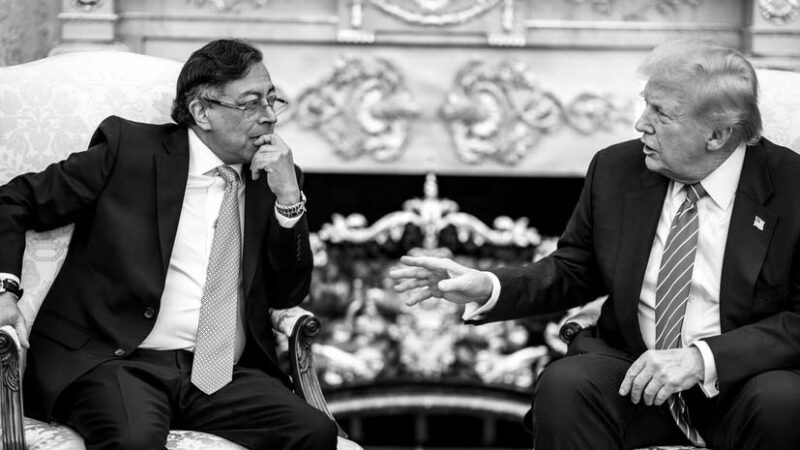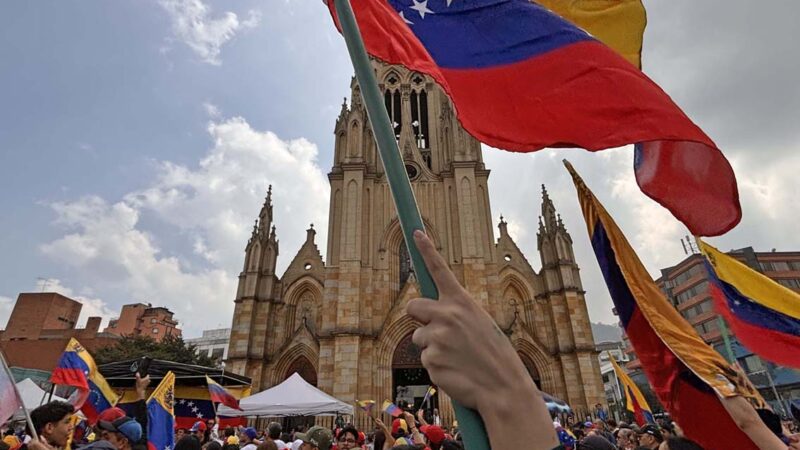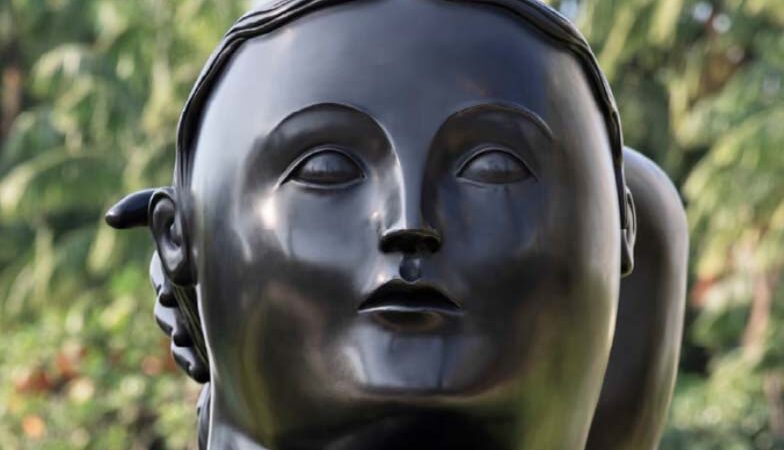
The sentencing of former president Álvaro Uribe Vélez to 12 years of house arrest for witness tampering and bribery has sent tremors through Colombia’s political landscape, just days before tens of thousands are expected to rally nationwide in his defense.
On Friday, Judge Sandra Liliana Heredia handed down a 1114-page sentence against the 73-year-old conservative leader, making Uribe the first former president in Colombia’s history to be convicted of a crime. In addition to the 12-year term of house arrest, Uribe was fined US$578,000 and barred from holding public office for more than eight years.
“This decision undermines justice,” Uribe said in a post on X, hours before his sentencing. “The most difficult crises are those that affect us personally. I am preparing arguments to support my appeal.”
Uribe’s legal team, led by high-profile attorney Jaime Granados, filed a tutela – a constitutional appeal – on Monday, claiming Uribe’s fundamental rights had been violated. They argue that his presumption of innocence was disregarded and that he poses no threat to society, citing his full cooperation with the judicial process and his deep roots in the community.
The case, which dates back to 2018, centers on allegations that Uribe attempted to manipulate testimony related to his alleged ties with right-wing paramilitary groups. His conviction marks a dramatic fall from grace for one of the most influential and polarizing figures in Colombian history. Supporters credit a former two-term president (2002–2010), Uribe, with pacifying large parts of the country through a hardline military campaign against leftist guerrillas.
Judge Heredia ordered Uribe to report to authorities in Rionegro, Antioquia, where he resides, and start immediately serving a sentence that, in effect, is as along as the legal case to date. An appeal hearing is scheduled for August 4.
In a sign of deepening political polarization, Uribe’s party, the right-wing Centro Democrático, has called for nationwide protests on August 7 – Colombia’s anniversary of the 1819 Battle of Boyacá, a patriotic holiday that marks the founding of Colombia’s Armed Forces. Organizers have announced gathering points in Bogotá, Medellín, Cali, Barranquilla, Cartagena, and Bucaramanga, using slogans like “March for Álvaro Uribe, Democracy, and the Freedoms of All Colombians.”
“This is about more than Uribe. It’s about preserving our freedoms,” said Senator Paloma Valencia, a leading voice in the party. “We must show the country that this is not justice – it’s political revenge.”
The ruling has also triggered international reactions. U.S. Secretary of State Marco Rubio, a staunch supporter of Uribe, condemned the verdict as a “weaponisation of Colombia’s judicial branch by radical judges,” echoing concerns from Uribe’s allies that the process was politically motivated. The U.S. was a key backer of Uribe’s military campaign against the Revolutionary Armed Forces of Colombia (FARC), a conflict that eventually led to the 2016 peace accord under President Juan Manuel Santos – agreement the majority of Colombians fiercely opposed with a plebicite.
With national elections less than a year away, the timing of the verdict could significantly impact the political balance. The Centro Democrático is preparing to launch candidates in what could be one of the most consequential elections in years. Internal party votes are set for August 26, and Uribe’s conviction – if not overturned – could change both the tone and turnout of those primaries.
Meanwhile, the case now heads to the Bogotá Superior Tribunal, where a panel of three magistrates will determine whether to uphold the sentence. If a ruling is not issued by mid-October, the case risks expiring due to statute of limitations, which would nullify the conviction and restore Uribe’s freedom – a possibility that has further inflamed both sides of the debate.
The political stakes could not be higher. For Uribe’s large and loyal base, the former president remains a symbol of order, determination, and resistance against what they see as a left-wing takeover of the country’s institutions.
Whether the marches on August 7 will be a turning point or another episode in the country’s volatile political cycle remains to be seen. What is clear is that Colombia, once again, finds itself torn between past loyalties and an increasingly entrenched government of President Gustavo Petro that is willing to grant amnesty to some of the country’s most dangerous criminals under the guise of a “total peace” agenda.
For the Petro administration, the conviction of Uribe represents more than a legal benchmark – it is part of a broad attempt to rewrite the narrative of Colombia’s internal conflict. Petro, himself a former member of the M-19 guerrilla, has sought to recast illegal armed groups as “peace facilitators” deserving of political representation, while simultaneously defunding the Armed Forces, and vilifying those who led the state’s military response to decades of guerrilla violence.
This ideological inversion has alarmed many Colombians, especially victims of the FARC’s kidnappings, massacres, and forced displacement. They see in Uribe’s sentencing not only a legal precedent but a symbolic condemnation of the very efforts that once brought relative peace and state presence to large swathes of the country. While the transitional justice system – JEP – created under the 2016 peace accords has been criticized for leniency toward former FARC, the full weight of the law appears to be falling on a former president, whose only crime, in his words, “is being a patriot”.
Or in the words of Moisés Wasserman, political commentator and former rector of Colombia’s public National University: “We are living in a delirium. The numbers don’t add up, failures are presented as successes, insecurity as peace, illness as health, and the country is divided between worshippers of different leaders. This will lead to a war of fanatics guided by delusional narratives.”
Share this story
Richard Emblin
Richard Emblin is the director of The City Paper.









